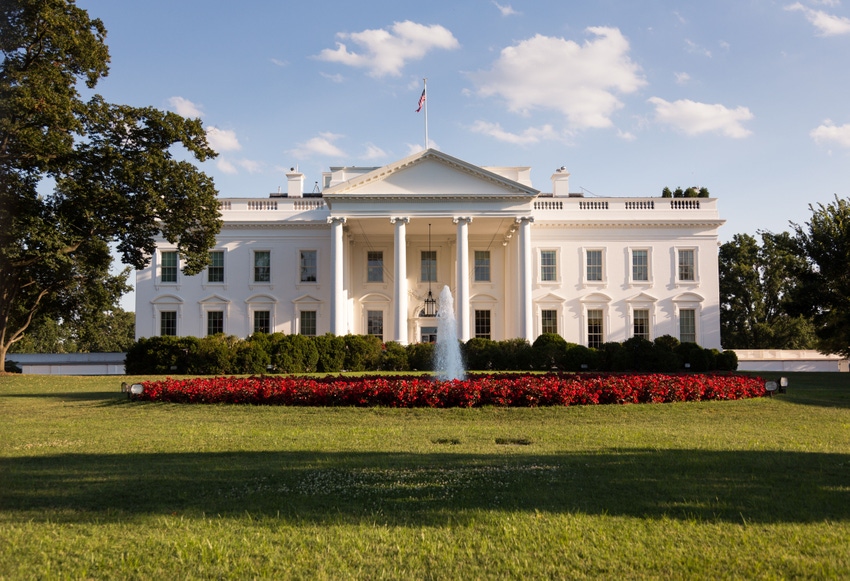Universities, consortiums and Parallel Wireless score open RAN funding
Mississippi State University, Booz Allen Hamilton and two companies (PhasorLab and Parallel Wireless) backed by entrepreneur Steve Papa are among the entities scoring a total of $13 million for open RAN testing.

The Biden administration released its latest batch of open RAN grants, allocating a total of $13 million to projects mostly focused on developing testing procedures for the technology.
Recipients across the seven grants include universities like Mississippi State University and Virginia Polytechnic Institute and State University, government contractors including Booz Allen Hamilton, a consortium called the Open Networking Foundation, and two companies (PhasorLab and Parallel Wireless) backed by wireless entrepreneur Steve Papa.
The grants stem from the $1.5 billion Wireless Innovation Fund – funded by the CHIPS and Science Act of 2022 – and were funneled through the NTIA, a White House agency charged with advising the president on telecom matters. It's the same agency handling Biden's $42.45 billion Broadband Equity Access and Deployment (BEAD) program.
"The transition to open, interoperable wireless networks is now well on its way – bringing with it greater security, competition and resiliency," said NTIA Administrator Alan Davidson in a release. "The Wireless Innovation Fund will accelerate this shift by supporting the foundational research and testing needed for this crucial technology."
The overall goal of open RAN is to create interoperable interfaces across different components inside a wireless network so that mobile operators can mix and match equipment from different vendors. This represents a departure from standard networking deployments, which often feature proprietary connections among components supplied by a single vendor.
But regulators in the US and elsewhere see a related benefit in open RAN: The opportunity to foster the development of domestic telecom equipment suppliers and to block the rise of Chinese vendors like Huawei and ZTE.
"We need to lead on innovation in wireless technology to create a more secure, resilient supply chain, boost our economic competitiveness, and protect our national security," said Biden's Commerce Secretary Gina Raimondo in the NTIA release.
Testing for success
According to the NTIA, its latest grants focus on "advancing security and energy efficiency testing, automating the testing process, and leveraging artificial intelligence to improve network and software testing."
Indeed, funding suitable testing operations was a top concern among the many companies – including Verizon, Mavenir and others – that sought to guide the direction of the Wireless Innovation Fund. After all, the open RAN concept only works if products from one vendor plug into the products of another – and testing is the only way to determine if those plugs work.
In its new round of grants, the NTIA focused on testing scenarios and technologies including automation, AI assistance and security. For example, Booz Allen Hamilton was awarded almost $2 million to "test methods that can advance state-of-the-art Open RAN security and defend open networks against sophisticated threats." And Northeastern University received almost $2 million for digital twin testing.
One noteworthy recipient was PhasorLab, which scored almost $2 million to "construct a large language model (LLM) that can accurately simulate and model user equipment for 5G use cases." PhasorLab will work with Parallel Wireless and Cimulate on the project.
According to its website, PhasorLab was founded by Joshua Park and Steve Papa in 2014. Papa also founded open RAN technology and equipment vendor Parallel Wireless, which recently announced plans to deploy open RAN equipment across locations in Africa.
The push against Huawei
According to a lengthy Politico article, Africa is emerging as one of several battlegrounds where US diplomats are working to generate opposition to telecom equipment from Chinese suppliers like Huawei and ZTE. In general, they fear such equipment could be used for Chinese espionage, though the Chinese companies reject that allegation.
Specifically, US officials have managed to block the sale of such equipment domestically, and are now working to tear out Chinese-supplied equipment from some US networks. Internationally, officials in the Trump and Biden administrations have been working to rally allies to deploy similar blockades.
Despite a few holdouts like Germany, those blocks have been implemented in countries ranging from Japan to India to Australia to the UK. And now, according to Politico, the effort is expanding out into strategic markets across Latin America, Africa and Asia, including the Philippines, Jamaica, Kenya and Ukraine.
The latest: Costa Rican President Rodrigo Chaves in August signed legislation to require network operators in the country to procure equipment "only from trusted suppliers."
As the Politico article notes, open RAN stands as a long-term answer to the Western campaign against Chinese suppliers. "If we don't move to a more open network that's more software-driven, we're always going to be chasing a company like Huawei that is enormously subsidized by the Chinese government," warned US Senator Mark Warner, a key architect of the US government's support for open RAN.
About the Author(s)
You May Also Like












